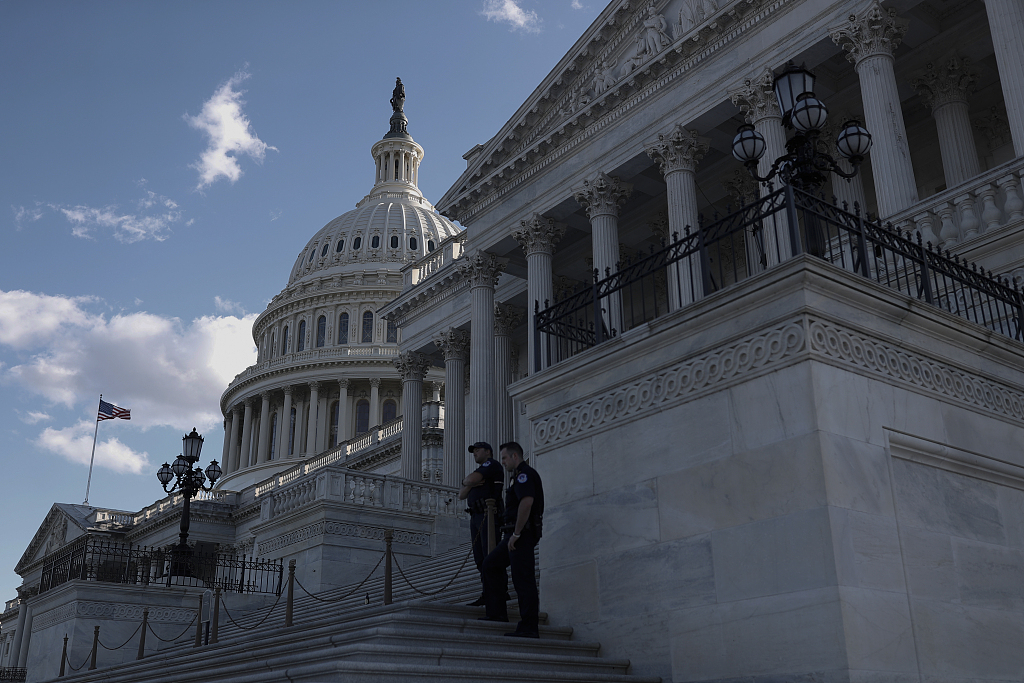
Taipei 101 in Taipei, Taiwan, China, July 14, 2019. /VCG
Taipei 101 in Taipei, Taiwan, China, July 14, 2019. /VCG
Editor's note: Hannan Hussain is a foreign affairs commentator and author. He is a Fulbright recipient at the University of Maryland, the U.S., and a former assistant researcher at Islamabad Policy Research Institute. The article reflects the author's opinions and not necessarily the views of CGTN.
U.S. Senators Bob Menendez and Lindsey Graham recently introduced the Taiwan Policy Act of 2022, a 107-page bill that Menendez called a "seminal statement of the United States' absolute commitment" to China's Taiwan region. The bill's focus on an unwarranted "defense partnership" and multibillion dollar security assistance capture the latest bipartisan attempt to interfere in China's internal affairs. Such attempts to empower Taiwan separatist forces have failed in the past, and the Taiwan Policy Act will be no exception.
Washington's willingness to consistently endorse and support the motivations of Taiwan independence forces should make a fundamental reality clear: characterizing "the security of Taiwan" and the ability for its people to "determine their own future" as "fundamental to United States' interests and values" is a preposterous assertion. It serves no other interest than hollowing out and obscuring Washington's adherence to the one-China principle. That trajectory is unsustainable.
The act arrives at a time when U.S. officials are keen to advance high-level communication between the two countries in the summer. President Joe Biden has acknowledged the prospect. But exercising mature diplomacy – in the spirit of mutual respect – demands close attention to China's steadfast stand on territorial sovereignty and the centrality of the Taiwan question to the China-U.S. political foundation.
However, the Taiwan Policy Act runs contrary to those realities, presenting false pretexts of Chinese "aggression and influence campaigns" to justify Senator Graham's fiction of record-setting military and economic "expansion" with the Taiwan region.
As a branch of the U.S. government, Congress will be ill-advised to entertain select procedures in the bill that use defense spending as a front to envision flagrant violations of China's sovereignty. That includes $4.5 billion in Foreign Military Financing appropriations under a so-called Taiwan Security Assistance Initiative. As the bill's breakdown indicates, it is a vehicle to tout security incentives suited to Taiwan separatist forces, ignoring that all acts of Taiwan independence are doomed to end in failure.

U.S. capitol police officers stand outside the capitol building in Washington, D.C., U.S., June 9, 2022. /VCG
U.S. capitol police officers stand outside the capitol building in Washington, D.C., U.S., June 9, 2022. /VCG
Interestingly, the same futility accompanies the bill's proposed designation of Taiwan as a"major non-NATO ally (MNNA)." Consider how such dangerous ambition identifies closely with past U.S. attempts at sovereign interference as denounced by China.
Moreover, the White House already informally views the Chinese region from an MNNA lens. But Washington's play of fire with the Taiwan question and its futile MNNA campaign cannot be legitimized by using the Taiwan Policy Act as some legislative cover. U.S. lawmakers are acutely aware that any form of official contacts with the Chinese region are tantamount to a flagrant violation of the stipulations in the three China-U.S. joint communiques.
The U.S. cannot claim it opposes Taiwan independence in one instance, while entertaining propositions that are big on domestic meddling in Congressional circles. It is either a credible commitment to the ironclad one-China principle or a violation of it.
Finally, the legislation's attempt to push an agenda on Taiwan's so-called inclusion in international organizations is also destined to hit a brick wall. By virtue of being part of China, there is absolutely no credible historical or legal basis for making the case for Taiwan's "participation" on the international level. Critical chapters in history, such as the passage of the UN General Assembly Resolution 2758 in 1971 – which acknowledges the People's Republic of China as the sole legal government representing the whole China – removes all doubts about challenging the centrality of Taiwan to China. By suggesting an amendment that enables the U.S. to lead a campaign for altering the resolution's content, the Taiwan Policy Act imagines a world where U.S. dictates supersede international legal consensus.
U.S. attempts to maliciously misconstrue international laws and norms to further its wishful containment of China will not succeed. And so, giving those political provocations new space within the Taiwan Policy Act does not alter reality one bit. What it does confirm is that deliberate mishandling of the Taiwan question will only further hollow out Washington's commitment to the ironclad one-China principle, and lead to what senior Chinese diplomat Yang Jiechi warned as "subversive impact."
(If you want to contribute and have specific expertise, please contact us at opinions@cgtn.com. Follow @thouse_opinions on Twitter to discover the latest commentaries on CGTN Opinion Section.)

